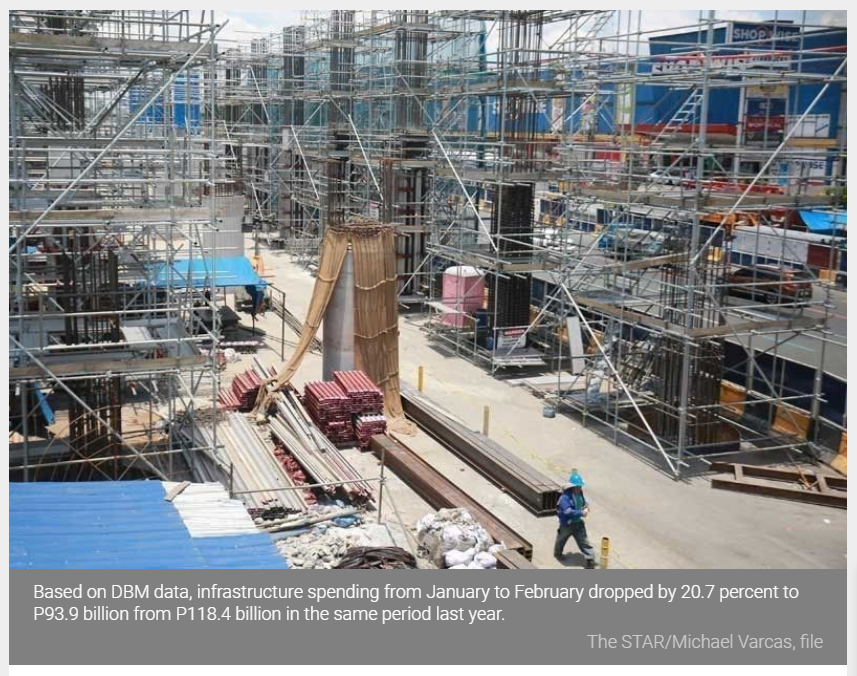Philippines: Infrastructure spending falls in 2 months
MANILA, Philippines — Public spending on infrastructure declined in the first two months due to high base effects caused by the timing of disbursements for accounts payables, according to the Department of Budget and Management (DBM).
Based on DBM data, infrastructure spending from January to February dropped by 20.7 percent to P93.9 billion from P118.4 billion in the same period last year.
Including equity and capital transfer to local government units (LGUs), total capital outlays in the first two months likewise fell by 14.3 percent to P119.2 billion from P139 billion a year ago.
The DBM attributed the slowdown in infrastructure spending to high base effects, given the higher value of accounts payable settled in the same two-month period of 2019.
“The decrease is mainly attributed to the base effect of high infrastructure expenditures in the same period last year brought about by the payment of prior years’ accounts payable for completed projects of the Department of Public Works and Highways (DPWH),” the DBM said.
“Prior years’ accounts payable of the DPWH for its capital outlays for the first two months of 2020 amounted to P35.2 billion, down from the P82.2 billion recorded in the same period last year,” it said.
The DBM said this decline was partially offset by the P13-billion increase in the DPWH’s current year accounts payable, the encashment of check floats, as well as the payments for completed projects under the Revised Armed Forces of the Philippines Modernization Program.
Meanwhile, the DBM data also showed that infrastructure disbursements for February, alone, shrunk by 9.3 percent, reaching P45.6 billion compared to P50.3 billion a year ago.
Despite the decline in infrastructure spending and capital outlays, the national government’s total disbursements in the first two months still managed to rise by 5.2 percent to P516 billion from P490.7 billion in the same period last year.
The DBM said this growth was driven by the increase in personnel services expenses, subsidies to government corporations, and allotment and capital transfers to LGUs.
Going forward, the DBM expects expenditures in March and the first quarter of the year to be higher year-on-year, but below program due to temporary delays in the implementation of projects as a result of the enhanced community quarantine.
Source: https://www.philstar.com/business/2020/04/29/2010454/infrastructure-spending-falls-2-months


 Thailand
Thailand




